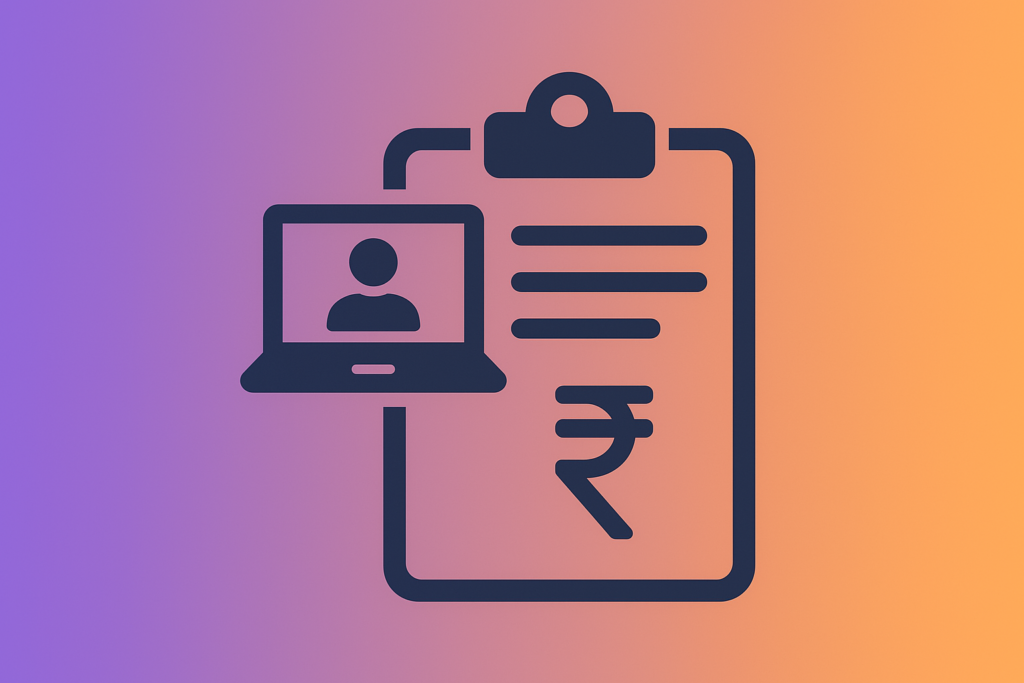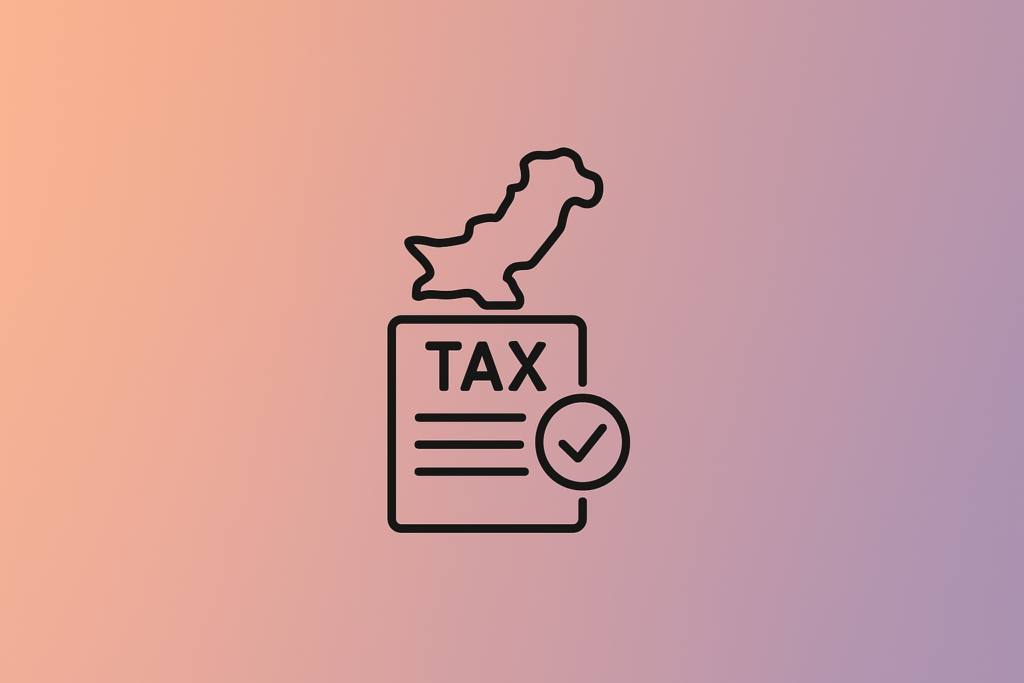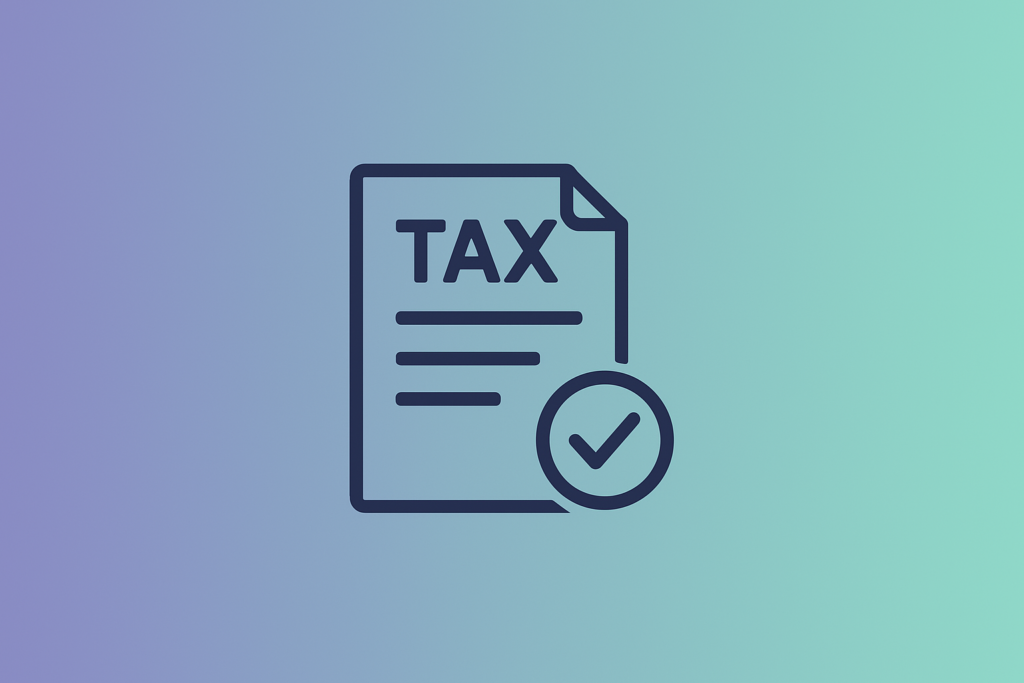Hey, Shahzad here.
Let me guess — you’re a freelancer in Pakistan earning through Upwork, Fiverr, PeoplePerHour, or even just direct clients via email or WhatsApp. You’re getting paid via Payoneer, maybe sometimes via Wise, and everything’s working fine…
Until you hear a sentence that flips your mood:
“You know FBR’s tracking freelance income now, right?”
And suddenly, you’re wondering:
- Do I need to register as a freelancer with FBR?
- Is my foreign income taxable in Pakistan?
- Can I claim expenses like internet, software, and workspace?
- How do I file returns if I don’t have a company or full-time job?
You’re not alone.
As a tax consultant and digital business trainer, I’ve personally guided hundreds of freelancers — designers, writers, developers, VA’s, video editors, even TikTok creators — through Pakistani tax compliance.
And here’s the truth:
Freelancers in Pakistan are required to register with FBR, file tax returns, and can legally reduce their tax through smart preparation.
This article is your go-to guide for understanding how to prepare and file taxes as a freelancer in Pakistan in 2025 — whether you’re new to the game or already crushing six figures.
Let’s break it all down.
Why Freelancers Need to File Taxes in Pakistan
First things first — yes, you are taxable.
Many freelancers assume that foreign income is tax-free in Pakistan. And that’s only partially true.
Here’s how it works:
If your freelance income is received through official banking channels — like a Payoneer bank withdrawal, Wise transfer, or direct remittance — it can be treated as foreign-sourced income, which is eligible for exemption under Section 111(4) of the Income Tax Ordinance 2001.
But here’s the kicker: you still need to declare it in your tax return.
Because if you don’t:
- You won’t be listed on the Active Taxpayer List (ATL)
- You can’t claim tax deductions or refunds
- You’ll be charged higher withholding tax on bank transactions
- You could receive notices from FBR (especially if your remittances exceed Rs. 2M+ annually)
I’ve had clients get flagged just because they were bringing in consistent Payoneer payments — without filing.
Avoid that drama. Let me show you the smarter route.
Who Is Considered a Freelancer Under FBR?
The FBR doesn’t have a fancy definition for a freelancer.
But legally speaking, you’re considered a non-salaried individual earning income through services — whether local or foreign — under the “Income from Business” category.
This includes:
- Graphic designers
- Content writers and SEO experts
- Developers and coders
- Voice-over artists and animators
- VAs, customer support agents
- Digital marketers, social media managers
- YouTubers, TikTokers, influencers
- Affiliate marketers or digital consultants
If you’re working remotely and getting paid for your skill — you’re running a business, even if it’s just you.
And that means you need to register with FBR and file your return annually.
Let me walk you through how to prepare for that.
Step 1: Register Yourself as a Taxpayer (Freelancer Style)
Before you can file anything, you need to get in the system.
Here’s what you do:
- Visit the FBR IRIS portal
- Click on “Registration for Unregistered Person”
- Enter your CNIC, email, and phone number
- Verify the code sent to your phone and email
- Boom — your IRIS account is created, and your CNIC becomes your NTN
After that, log in and complete your “Registration Form – 181” under the Drafts tab.
Under “Nature of Business,” write:Freelance Digital Services or something aligned to what you do.
Under “Business Name,” you can just use your own name.
Set your business type to Individual / Sole Proprietor.
Now you’re officially a registered freelancer with FBR.
Step 2: Track Your Freelance Income Properly
One of the biggest problems I see?
Freelancers not maintaining any records. No invoices. No client receipts. No tracking of what came from where.
As a result, they either:
- Underreport their income and trigger red flags
- Overreport and pay more tax than needed
- Have no defense when questioned by FBR
So here’s what I suggest:
Start a basic spreadsheet with:
- Client name
- Project description
- Invoice amount
- Payment method (Payoneer, bank transfer, Wise)
- Date received
- Currency and conversion rate
- PKR received in bank
If you want to level up, use tools like Wave, Zoho Books, or Google Sheets with formulas.
Also, keep screenshots or bank statements for each payment — in case FBR requests proof.
Remember: well-documented income makes tax filing smooth, legit, and stress-free.
Step 3: Track Your Business Expenses (And Save Tax)
Here’s where things get really interesting.
As a freelancer, you can legally deduct business-related expenses from your income before calculating tax.
That’s right. Pakistan’s tax laws allow you to subtract allowable business expenses from your total receipts — which lowers your tax liability.
So what can you deduct?
Here’s a list of typical freelance expenses that are tax-deductible in Pakistan:
- ✅ Internet bills
- ✅ Laptop or hardware purchases
- ✅ Electricity (partial, if working from home)
- ✅ Office furniture
- ✅ Software subscriptions (Adobe, Grammarly, Ahrefs, etc.)
- ✅ Fiverr/Upwork commission fees
- ✅ Banking charges
- ✅ Hosting, domains, tools
- ✅ Co-working space rent
- ✅ Travel expenses (if related to work)
Keep receipts or screenshots of every expense. Scan and save them monthly.
When filing your return, you’ll declare total income minus these expenses. Only the net profit gets taxed.
That’s how you file smart — not scared.
Step 4: File Your Tax Return on IRIS Like a Pro Freelancer
Once you’ve tracked your freelance income and expenses, it’s time to file your return on the FBR IRIS portal.
You’ll be filing under the category of “Income from Business.”
Here’s the step-by-step:
- Log in to IRIS
Use your CNIC and password (or reset it if you’ve forgotten). Once inside, click on the “Declaration” tab and choose the latest tax year. - Head to the Income Section
Under “Income from Business,” declare:- Your gross receipts (total earnings from clients)
- Your allowable expenses (as we discussed earlier)
- The resulting net profit (receipts – expenses)
- Declare Withholding Taxes
If your bank deducted any withholding tax (on Payoneer withdrawals, foreign remittances, or ATM transactions), declare them under “Adjustable Tax”. You’ll find this in the Tax Chargeable/Adjustable section. - Claim Foreign Remittance Exemption (if applicable)
If your freelance income came through banking channels from abroad, declare it under Section 111(4) to claim exemption. But make sure:- The payment came through a bank or recognized financial institution
- You retain proof (bank credit, SWIFT receipt, Payoneer bank statement, etc.)
- Fill Out the Wealth Statement (Form 116)
This is mandatory, even if you’re just starting out. Declare:- Total bank balance at year-end
- Any laptops or equipment
- Cash in hand
- Personal expenses like rent, food, bills
- Increase/decrease in net worth (should reflect your income)
- Double-check Everything and Submit
Review all fields, hit “Submit” on both the income tax return and wealth statement. - Download Your Acknowledgment
Save your:- Return acknowledgment
- Wealth reconciliation report
- Tax profile update
You’re officially a freelancer-filer in Pakistan now. 💼💪
Understanding Foreign Income Exemption (Section 111(4))
Let’s go a bit deeper here, because this is where most freelancers get confused — and some even make unintentional mistakes that cost them refunds or bring audit notices.
Section 111(4) of the Income Tax Ordinance allows for foreign remittances to be exempted from tax, but only if:
- The income is brought into Pakistan through a proper banking channel
- The amount is declared in the tax return
- You have verifiable evidence (bank credit slip, Payoneer statement, etc.)
Here’s what doesn’t count:
- Remittances received via Western Union or unverified wallets
- Foreign income that’s not reported
- Using a relative’s bank account instead of your own
If done right, this exemption can legally zero out your tax liability on foreign freelance income.
But you still have to file and declare — because exemption ≠ invisibility.
As a freelancer, your job is to disclose and defend your earnings — not hide them.
Common Tax Filing Mistakes Freelancers Make
Over the years, I’ve reviewed hundreds of freelancer returns — and trust me, some of these mistakes pop up way too often.
Let me help you avoid them:
❌ Not Declaring Income
Even if your income is exempt, you must declare it. Non-disclosure is treated as concealment, which is a serious offense under FBR law.
❌ Skipping the Wealth Statement
This gets your return marked as “incomplete.” You won’t show up in ATL and may even get penalized.
❌ Using Personal Accounts Without Documentation
You should ideally receive payments in your own bank account — and keep the statements. FBR only accepts income that’s traceable and explainable.
❌ Overclaiming Expenses Without Proof
Yes, you can deduct expenses. But if you claim Rs. 600,000 in internet bills without a single invoice? That’s a red flag.
❌ Filing Late
Don’t wait until the last day. FBR servers slow down (or crash), and mistakes go uncorrected. Aim to file at least a week before deadline.
Avoid these traps, and filing becomes clean, simple, and stress-free.
Checklist for Freelancers Filing Tax in Pakistan (2025 Edition)
Let’s sum it up into an easy checklist. You can even copy-paste this into your Notion or Notes app.
✅ Before Filing:
- Register on FBR IRIS portal
- Complete Registration Form 181
- Track freelance income and clients
- Record all expenses
- Download bank statements, Payoneer summaries
- Get tax deduction certificates from banks
✅ During Filing:
- File income under “Income from Business”
- Enter expense breakdown
- Add foreign remittance details
- Claim exemption under Section 111(4)
- Fill out and submit Wealth Statement
- Submit and download all reports
✅ After Filing:
- Monitor ATL status here
- Keep digital records of all submissions
- Set a reminder to file next year early
Stick to this checklist, and you’re filing like a pro.
Final Thoughts: The Future of Freelancers in Pakistan Is Tax Compliant
Here’s what I tell every student and freelancer I coach:
Freelancers who take taxes seriously scale faster, earn more, and face fewer obstacles.
Getting registered, filing correctly, and claiming your exemptions is more than “following the law.”
It’s how you:
- Become eligible for low-tax banking
- Get on ATL (and save money)
- Apply for loans, cars, property
- Avoid audit stress
- Sleep well at night knowing you’re legit
And if you ever need help — whether it’s registration, filing, revision, or notice response — my team at Tax Advisor.pk is just a call or message away.
You’ve already built your skill.
Now build your financial foundation to match it.
You’ve got this.



